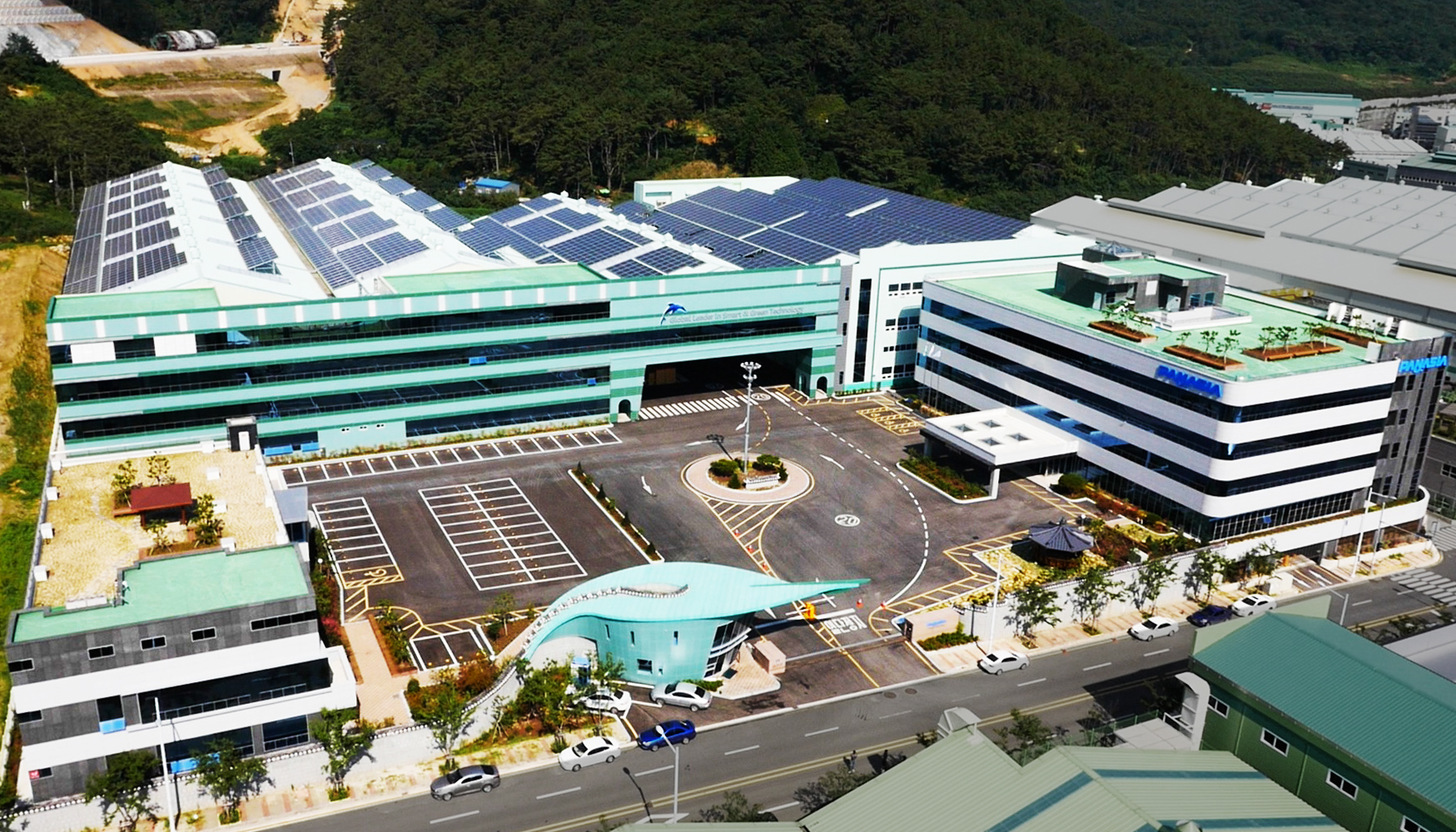- This is PANASIA
- ESG Management
- History
- Smart PANASIA
- Contact information
 About
About
Check PANASIA introduction,
ESG management, and History
information
- Energy Solutions
- Air Solutions
- Water Solutions
 Eco-friendly Solution
Eco-friendly Solution
About Global environmental
regulation, Hydrogen business,
Air quality, and Water quality
environment solutions
- Product Service
- Service Network
- Customer Service
 Customer Support
Customer Support
Check the Panasia’s
after service
- About
- Eco-friendly Solution
- Customer Support
- Media
NEWS

[2020 Oceans Day] Marine Fourth Industry/Green New Deal Post Covid-
19-‘Make or Break Time’ for Eco-friendly Logistics Innovation
· IMO restrictions in full force, with rising hope in eco-friendly ships…
· Projecting giant, PANASIA, to dominate City pushes Marine Mobility Zone plans forward to attack the niche market…BPA, digital
innovation accelerates
· Korea Ocean Business Corporation, backs marine industry innovation with finance…Busan holds key role in eco-friendly systematic
improvement
The hottest topic among professionals, post Covid-19, is ‘Untact’ pertaining to ‘fusion with 4th industry’ and ‘Green New Deal’
referring to being ‘eco-friendly’.
This is no different for the Busan maritime industry. Businesses and organizations driving block chain smart ship/ports and logistics
innovation integrating the 4th industry, are emerging. Although LNG ships are temporarily faltering, there is still much confidence in eco-
friendly ships in the ship industry. With tightened IMO regulations, we may see a sharp rise in orders according to the situation of the
ship industry post Covid-19. With the recent slump in the ship industry there seems to be more attempts to enter the niche market for
new ships.
It is also worth focusing on financial backings related to this movement.
◇ “Attacking the eco-friendly fuel niche market”…PANASIA and Busan launch the regulatory innovation special zone

▲ A panoramic view of PANASIA located in Mieumsandan (provided by PANASIA)
Green New Deal refers to the creation of a new market, added value, and new jobs as the nature of the industry becomes more
‘environment-friendly’. This was proposed as a measure to overcome and accept the global slump as the ‘new normal’ even before
Covid-19.
IMO 2020 restrictions have pressed the marine sector into becoming more eco-friendly. The main idea of the IMO regulation is to
reduce the sulfur cap in ship fuel from 3.5% to 0.5%. Thus, it is pushing the development of new ships with devices that reduce sulfur
oxides or ships that use eco-friendly fuel.
While the lifespan of a vehicle is 10 years, the lifespan of a ship is relatively long reaching 20~30 years, therefore, the transition into
ships with eco-friendly fuel is expected to take quite a long time. In particular, as container traffic demand has reduced, and as the
market situation of the ship industry remains idle post Covid-19, demand for LPG ships which operate at a relatively lower cost are
expected to continue.
In Busan, PANASIA is attracting attention as a giant dominating the movement into eco-friendly fuel.
PANASIA’s flagship products are the scrubber system which removes sulfur oxides, and the ballast water treatment system. Propelled by
these flagship products and the current environment-related ship restrictions, PANASIA has made a quantum leap.
According to a recent publication by the Financial Supervisory Authority Data Analysis Retrieval and Transfer System (DART),
PANASIA’s last year sales was 328.5 billion won, business profit was 71.5 billion won, and net profit during the term was 64.7 billion
won.
This is a 5.7-times increase compared to sales at 57.2 billion won; a 514-times increase compared to business profit at 138.86
million won, and a 155.6-times increase compared to net profit during the term at 416.38 million won in the previous year.
While some point out that if the share of LNG ships increases rapidly, the demand of scrubbers placed as temporary measures, may
decrease, with continuing unfavourable factors including Covid-19, the benefits to PANASIA are expected to continue for some time.
At the end of last year, PANASIA celebrated its 30-year anniversary, where PANASIA’s CEO Lee Soo-tae expressed his confidence
that he “expects PANASIA to become a 1-trillion-won company by 2025.”
Driven by this growth, it aims to enlist in the stock market next year. If this exceptional performance continues, as much as material,
parts, equipment companies are gaining popularity in the most recent initial public offering, it is expected to be valued highly.
Now with the marine mobility regulation-free zone project by Busan stating details on LPG small/medium ships, it is worth noting
whether new growth engines can be created in the niche market switch to eco-friendly ships.
According to Busan, market domination is plausible as there is no global standard regarding LPG ships; and the marketability and
economic effect seems sufficient because it can be commercialized in a short time as US shale gas LPG exports are projected to
increase until 2029, and there
is sufficient relevant infrastructure.










